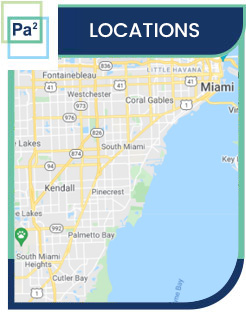Do I Need an Allergist or an ENT Specialist?
Allergists diagnose and treat persistent allergies, focusing on the immune system and allergic reactions. They develop personalized treatment plans, offer long-term management strategies, and provide comprehensive care including allergy testing, medication management, and immunotherapy. Board-certified allergist Dr. Carlos Piniella, MD provides a wide range of allergy testing and treatment for patients of all ages. For more information, contact us today or schedule an appointment online. We have convenient locations to serve you in Coral Gables FL and Palmetto Bay FL.


Table of Contents:
What is the difference between an ENT specialist and an allergist?
When should you see a doctor about an allergic reaction?
How long is too long for an allergic reaction?
What are the signs that you need an allergist instead of an ENT specialist?
In the United States, both ENT (ears, nose, and throat) specialists and allergists are medical doctors whose fields involve a small amount of overlap; however, they are very distinct for the most part. For one, an ENT, or otolaryngologist, specifically is able to treat diseases, disorders, or irregularities within the nose, throat, and ear region through procedures and surgeries which are typically a product of a structural issue. This involves a range of different conditions from hearing loss, ear infections, sleep apnea, to even tumors. An allergist, or allergist/immunologist, on the other hand, is more involved with conditions involving the immune system, such as anaphylaxis, asthma, hives, and the abundance of immunodeficiency disorders that can affect a multitude of areas that are not limited to the ears, nose, and throat region. As previously mentioned, there is a slight overlap between the two specialties, specifically in cases where a physiological condition is amplifying the issues of an immune response. While an ENT may help run diagnostic tests or procedures for specific allergies, that job is largely for allergists. Keep in mind that this is true in general, but it may be a good idea to contact the specific ENT or allergist and ask about their specific focus or treatment offerings as each field does have room for specialization.
The effects of allergic reactions can range from slight irritating rashes to anaphylaxis, and because of this, it is important to identify when you or a loved one should seek healthcare. An immediate trip to the emergency department should be sought when a person is experiencing the following symptoms: swelling of the throat and tongue, difficulty swallowing or breathing, lightheadedness, and wheezing. These are all signs of anaphylaxis, a life-threatening allergic reaction that occurs very quickly. Gastrointestinal issues, such as diarrhea or vomiting are symptoms of allergic reactions that will likely warrant a trip to the ER and can be linked to anaphylaxis as well. On another note, people may want to consider urgent care or seeing their primary physician in the emergency department when experiencing a rash or hives not in conjunction with any of the previously mentioned symptoms. Though they can be very uncomfortable, they are generally not life-threatening cases of allergic reactions.
Being knowledgeable of the timeline regarding how allergic reactions develop, especially if you or a loved one has an allergy, can make all the difference in the event of a medical emergency. There are four basic types of allergic reactions that occur within different timelines, making it easier to differentiate between them. The reaction that occurs very quickly (ranging from seconds to a few minutes) after exposure to the allergen is anaphylaxis; when left untreated, anaphylaxis leads to respiratory failure in as quickly as 30 minutes in the most severe cases. Cytotoxic allergic reactions generally occur anywhere from a few minutes to hours after exposure, while immune complex allergic reactions often set in several hours after exposure. The final type, cell-mediated allergic reactions, can occur anywhere from several hours to even days after exposure to the allergen. If you believe you are experiencing a form of allergic reaction, it is always best to seek healthcare to ensure safety.
Oftentimes it is unclear for a patient whether to seek medical attention from an allergist or an ENT, as their fields can seem very similar. While there is certainly overlap, ENTs are primarily concerned with the structural issues that cause a plethora of other issues, while allergists are more concerned with the immune system and how the body responds to allergens. Because of this, cases of immunodeficiency, asthma, eczema, and food allergies, as well as recurring sinus infections, and itchiness (of the throat, ears, or eyes) are all very popular reasons that people see allergists instead of ENT. Again, there is a large amount of overlap between the two physician specialties, and it is not uncommon for allergists to refer patients to an ENT and vice versa. To ensure the proper treatment for your conditions, it is best to meet with a physician who can address your concerns and direct you to the appropriate treatment. We serve patients from Coral Gables FL, Palmetto Bay FL, Westchester FL, Brownsville FL, Kendall FL, Pinecrest FL, Richmond West FL, and Goulds FL.

Additional Services You May Need
▸ Asthma
▸ Allergy Testing
▸ Food Allergies
▸ Immunotherapy
▸ Patch Testing
▸ Allergy Treatment
▸ Pediatric Asthma Specialist
▸ Pediatric Allergist
▸ Insect Bite Allergy
▸ Drug Allergy
▸ Seasonal Allergies
▸ Skin Allergy

Additional Services You May Need
▸ Asthma
▸ Allergy Testing
▸ Food Allergies
▸ Immunotherapy
▸ Patch Testing
▸ Allergy Treatment
▸ Pediatric Asthma Specialist
▸ Pediatric Allergist
▸ Insect Bite Allergy
▸ Drug Allergy
▸ Seasonal Allergies
▸ Skin Allergy


